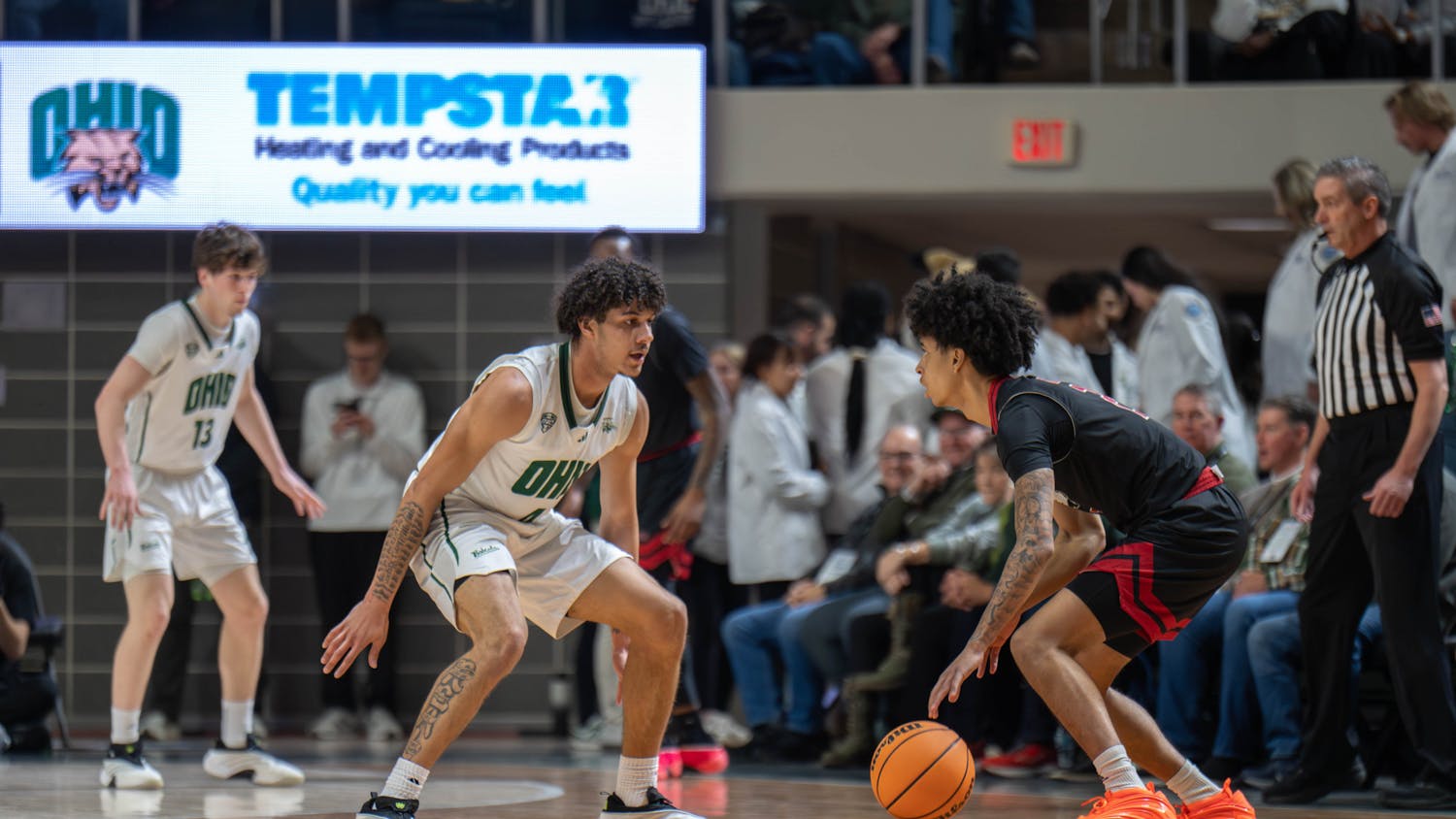Amid their busy schedules, Jewish students all over Ohio University are getting ready to celebrate one of their holiest holidays, the Jewish New Year known as Rosh Hashanah.
Rosh Hashanah is a time when all Jewish people can be found celebrating with their families, going to temple services and hosting feasts with traditional platters to praise God for creating the world from new.
Levi Raichik, rabbi and co-director of Chabad at OU, does not see Rosh Hashanah as just another arbitrary date on the calendar.
“When us Jews call it the Jewish New Year, we really believe that it’s not just the beginning of the year,” Raichik said. “It’s when we think about why God is re-creating the world and what is my place and responsibility in it.”
This year, Rosh Hashanah will begin the evening of Sept. 9 and end the evening of Sept. 11. Chabad will be hosting a four-course gourmet new year dinner at 6 p.m. Sunday, Sept. 9 that is free of charge for any Jewish students who RSVP before Sept. 5.
Raichik’s wife, with the help of some students, will be home-cooking the meal that will feature several traditional foods of Rosh Hashanah.
“We will be having a fish head at the head of the table because we want to start the year ahead,” Raichik said. “And we’ll also be serving challah, which is a type of bread that’s usually braided, but for Rosh Hashanah, it’ll be round and symbolizes the passage of time.”
Chabad is expecting more than 90 students to attend this formal event and ring in the new year. The more crowded the better, Raichik said.
On Sept. 10 at 12 p.m., Chabad will hold a 30-minute meditation at the center where Jewish students will discuss the meaning of the day, partake in prayer and blow the shofar, a ram’s horn.
“Back home when people went to the temple they’d be there for three or four hours, but to accommodate classes we’re making the service a lot more college oriented,” Raichik said.
Nate Chernomorets helped start Chabad his freshman year with Raichik and acknowledges that everybody is busy in college, but when it comes to Chabad, there are no strings attached and people can come and go as they please.
“Everybody comes together from different backgrounds and celebrates in different ways,” Chernomorets, the vice president of Chabad who is also a senior studying managing information systems and business analytics, said. “It’s just wild seeing everything that’s happened under the sun.”
Chernomorets would attend Rosh Hashanah services as a young child and celebrate with all his family and friends. A tradition of the new year he still practices is dipping apples in honey.
“Dipping apples in honey is something I think most Jews do to symbolize the sweetness of the new year,” Chernomorets said.
To Sarah Horne, a sophomore studying journalism, dipping apples in honey was something she engaged in more as a child.
“I think it’d be fun to go out and buy an apple and do the whole thing, but finding time to do those little things is hard sometimes,” Horne said. “The older I’ve gotten the more focused I’ve been on the services and prayer.”
Last year Horne livestreamed her temple’s Rosh Hashanah service in her residence hall room and engaged in the service.
“To me, Rosh Hashanah is a time I get to restart,” Horne said. “It’s like a new beginning, and I love the fact that I get to celebrate it with my family, even if it is through my computer.”
Chabad’s service will discuss the spiritual and mystical meaning of the day with the blowing of the shofar as the center point. To Raichik, the blowing of the shofar is what the whole ceremony is about.
“It symbolizes the inauguration of God in a way,” Raichik said. “When we talk about the new year and the new world, that’s why we blow it.”
Aside from the blowing of the shofar, Raichik is excited for the meditation in general.
“In college, students are more open to spirituality, and I don’t want to treat them like children,” Raichik said. “The service is going to be a lot of fun, and you’ll meet a lot of Jews that you’ve never met before.”





